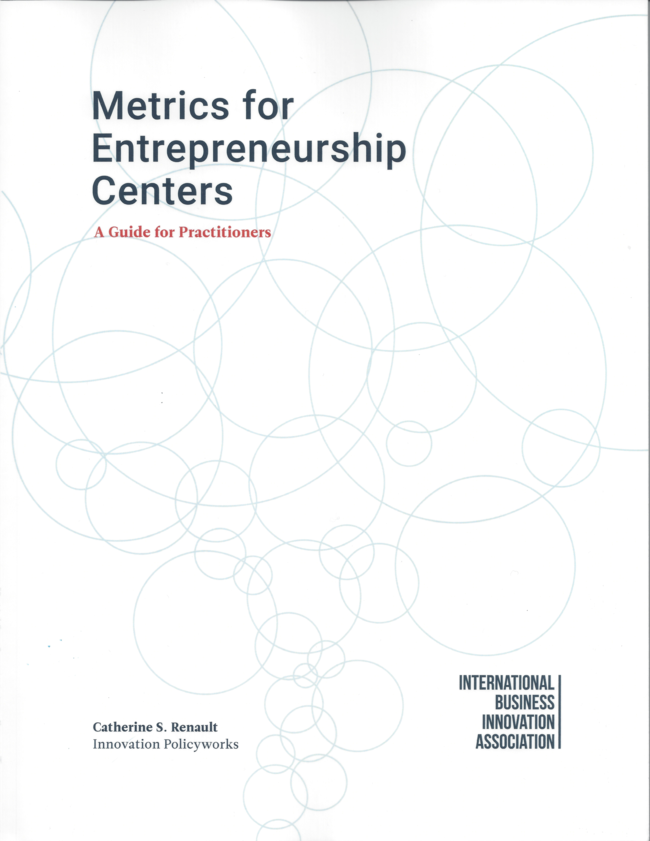|
|
|
Notes from Innovation Policyworks

It's not surprising that Amazon's recent announcement that they are abandoning their plans to add 25,000 jobs in New York after a year-long and much anticipated competition for HQ2 has reopened the debate about economic development incentives. The move came soon after Virginia's General Assembly had approved the incentives offered to Amazon for their new location in Northern Virginia. Critics in New York argued that the $3 billion package offered to Amazon, arguably the world's highest-valued company owned by the richest man in the world, was detrimental to New York State taxpayers.
Those rejecting incentives are often against anything that benefits a large company, claiming that incentives such as offered in New York to any company that expands, regardless of need, unnecessarily subsidize already successful enterprises. And, it is true that best practice for economic development incentives includes a "but for" test - a company asking for incentives should prove that they would not be able to make the investment without the added financial assistance.
This need, often a very real challenge in a development deal, is behind project financing incentives such as Historic Preservation Tax Credits, New Market Tax Credits and Tax Increment Financing. These incentives go a long way to increasing investment in properties and communities that are in distress and have been proven empirically to have long-term local economic benefits.
The commentary around Amazon, however, has also tapped into to a rising anti-tech sentiment which is short-sighted at best. Those of us in the innovation-based economic development community have been saying for decades that high-growth companies that start entrepreneurially can go on to become large employers, paying good wages, and supporting economic growth.
Read the rest of this blog HERE.
These strategies and more are covered in this piece about innovation and entrepreneurship-focused economic development. Read more in this complementary
pdf detailing five strategies for economic development.
Cathy
|
Clean Energy as Economic Development Policy
State Innovation Policy will support clean energy and climate change.
I recently asked some colleagues what they thought the most pressing issues are in economic development. My friend Mark Skinner at SSTI replied with an early version of a blog about whether or not economic development in general, and innovation-oriented economic development in specific, are doing enough to reverse the effects of climate change. He concludes that the "vast majority of ... projects... encourage urban sprawl and greenfield development, exasperating reliance on automobiles, encouraging ag industry consolidation and subsidizing workforce training in unsustainable jobs." Mark, as usual, is right and ahead of his time. Read Mark's whole piece
HERE.
"The global transition to lower-carbon energy resources is creating opportunities to build new and rapidly growing export industries, while also undermining established fossil-fuel-dependent export sectors and opening the door to energy-import substitution." This statement highlights a new ITIF policy white paper about clean energy as economic development policy. ITIF suggests there are five tracks that state and local policymakers may follow:
- Offering incentives to manufacturers and other investors
- Nurturing technology-based start-up companies
- Deepening existing clusters of clean energy companies
- Substituting local energy resources for imported energy resources
- Stimulating market demand for clean-energy products and services
For a complete discussion, click HERE.
|
|
Startup Act Reintroduced to Congress.
Late in January, Senators Moran, Warner, Blunt and Klobuchar re-introduced the Startup Act to Congress. The measure includes several innovation policies, such as reauthorizing the EDA's Regional Innovation Strategies program (i6 and other grants to regional and state innovation programs); a new commercialization grant program and a startup visa. The Act is widely supported in the innovation-based economic development community. The Act recognizes the importance of American innovation, entrepreneurs and commercialization. To learn more and find out how you can encourage your delegation to support the Startup Act, contact SSTI at 614-901-1690 or
[email protected].
|
|
Women
Investing in Women
Women-owned investment firms making record investments.
I admit that I've always had my doubts about funds specifically targeted to certain limited demographics, such as women, but the latest research has me convinced. There is a tendency to trust someone like you, so when only 18.4% of US venture capitalists are women, it makes sense that only around 3% of venture funds are invested in women founders.
In Europe, where a similar situation exists, a number of women have decided to attack the problem by setting up women-owned venture funds. One fund of note is Jane VC, launched by Stanford alumna last year. It looks like these types of funds are doing very well, because they invest in diversified leadership team, and diversity tends to maximize company performance.
Check out women in venture capital
HERE.
|
Best Practice in Business Acceleration
In the first academic paper to be written about business acceleration, three essential program designs were identified.
Chris Bingham, professor of strategy and entrepreneurship at the UNC Kenan-Flagler Business School is interested in what makes business accelerators successful. Bingham and his co-authors looked at how the design of accelerator programs influences their ability to positively impact the trajectory of the client companies. They define accelerators as programs that invest in cohorts of companies at a time. The three key components to successful program design are:
1.
Concentrate consultations between the companies and their mentors over a short period of time. This large amount of feedback early on helps the companies optimize their plans before investing a lot of time or money.
2.
Fostering transparency among the peer companies helps the entrepreneurs self-identify their weaknesses and move to ameliorate them.
3.
Standardize the program, so that the client ventures experience it all, and don't pick and choose what is comfortable for them.
|
Are Tech Jobs Overshadowed by Low Pay Jobs?
The New York Times thinks so.
The New York Times has published yet another diatribe against the tech industry, this one arguing that Phoenix's dramatic rise as a tech hub is overshadowed by the coincident rise in service industry jobs, such as healthcare, hospitality, retail and building services. Since the pay in these jobs is so low, the article argues, automation is "splitting the American workforce into two worlds: the small island of highly educated professionals ...and a sea of less educated workers who are stuck as businesses like hotel, restaurants and nursing homes." What do you think?
The New York Times article is
HERE.
|
Solo Entrepreneurship: Pride or Insult?
Most policymakers rightly put their attention on job-creating entrepreneurship, and solo entrepreneurship is generally classified as "lifestyle" companies. But, the sheer number of us who are creating our own jobs is forcing a change.
One writer, Martin Zwilling, even argues that being called a lifestyle entrepreneur should be a point of pride, not an insult! Anyway, according to the Global Entrepreneurship Monitor, solo entrepreneurs account for 9% of total entrepreneurship. In Brazil, for instance, a challenging economic environment means that 53% of their businesses have no co-founders or employees. And, many gig workers have the intention of starting a business in the near future or are actively setting up a business. The lines are blurring. See the GEM report
HERE.
|
|
| |
|
"Learning never exhausts the mind."
|
|
New to Innovation, Entrepreneurship or Economic Development?
Want to learn more about what programs work and why?
Five Strategies for Economic Development that enhance innovation and entrepreneurship.
Click
HERE for a complimentary PDF that outlines the whys and wherefores!
|
New evidence that remote workers are more effective.
I absolutely love working from my office in a quiet building far from those with whom I regularly collaborate. I don't miss one minute of being in a cubicle, or worse yet, one of those open offices. Turns out, research is now showing that I'm not along in thinking that this structure makes me more productive. Why?
1.
Eighty-six percent of workers say that working along makes them more productive.
2.
Distance improves teamwork because you have to work harder at communications.
3.
Remote workers can design their workday to meet the demands of their real life.
|
What Changed in Venture Capital in 2018?
Are we in another dot.com VC boom?
In 2018, we saw investment in venture capital funds rise to levels not seen since 2000, just before the dot.com bust. So, predictably, many folks are worried about what happens next. But, not to worry, says Mark Suster, who observes, for instance, that the majority of the dollar increases have been in "mega rounds" of $1 billion or more. "Traditional" venture capital rounds of $50-$100 million grew by only 14 percent. Another change of import is that much of the increase is really just money that used to be invested post-IPO. Now, more and more venture capitalists stay in deals much longer and absorb the gains that used to come after going public.
Read all the statistics
HERE.
|
|
Quick Links
Maine's Knowledge Economy: A Snapshot 2017
(2018 report coming in March. NSF statistics for 2018 not yet available because of shutdown!)
|
Metrics for Entrepreneurship Programs
 Have you been wondering how to convince your stakeholders that your program is performing well? My book on evaluating entrepreneurial programs, written for the International Business Innovation Association (iNBIA), is available on its website. The basics apply to any economic development program. Check it out HERE. Have you been wondering how to convince your stakeholders that your program is performing well? My book on evaluating entrepreneurial programs, written for the International Business Innovation Association (iNBIA), is available on its website. The basics apply to any economic development program. Check it out HERE.
|
|
|